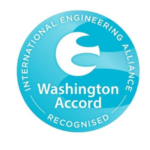Infrastructure development is a complex and critical process that requires the expertise of Chartered Engineers. Chartered Engineers are highly skilled professionals who have attained a recognized professional qualification and are registered with a relevant engineering institution. Here’s a look at their role in infrastructure development:
Project Management: Chartered Engineers play a crucial role in managing infrastructure development projects. They oversee the entire project lifecycle, from initial concept and feasibility studies to design, construction, and commissioning. They ensure that projects are delivered within budget, on schedule, and in compliance with applicable regulations and standards.
Feasibility Studies and Risk Assessment: Chartered Engineers conduct feasibility studies to assess the viability of infrastructure projects. They analyze technical, economic, and environmental factors, identify potential risks, and propose mitigation strategies. Their expertise helps stakeholders make informed decisions regarding project feasibility and investment.
Design and Planning: Chartered Engineers are responsible for designing infrastructure projects. They develop detailed engineering plans, considering factors such as structural integrity, functionality, sustainability, and safety. They utilize their technical knowledge and expertise to create innovative solutions that meet project objectives while adhering to regulatory requirements.
Compliance with Standards and Regulations: Chartered Engineers ensure that infrastructure projects comply with relevant standards, codes, and regulations. They stay updated on industry best practices and guidelines to ensure that projects are designed and constructed to meet quality, safety, and environmental standards.
Stakeholder Management: Infrastructure projects involve various stakeholders, including government agencies, local communities, contractors, and consultants. Chartered Engineers serve as a point of contact and effectively communicate with stakeholders, addressing their concerns, and ensuring that project requirements are met.
Quality Control and Assurance: Chartered Engineers implement quality control and assurance processes throughout the project lifecycle. They conduct inspections, tests, and audits to ensure that construction activities adhere to specifications, quality standards, and best practices. They also monitor the performance of infrastructure systems to identify any deficiencies and recommend appropriate corrective actions.
Sustainable Development: Chartered Engineers play a vital role in promoting sustainable development in infrastructure projects. They integrate environmentally friendly practices, such as incorporating renewable energy solutions, optimizing resource utilization, and designing for energy efficiency. They also consider the long-term environmental impact of projects and work towards minimizing their carbon footprint.
Health and Safety: Chartered Engineers prioritize health and safety in infrastructure development. They assess potential hazards, develop safety protocols, and ensure that projects comply with health and safety regulations. They also monitor construction activities to maintain a safe working environment for all involved parties.
Innovation and Technology Integration: Chartered Engineers embrace technological advancements and innovative solutions in infrastructure development. They leverage emerging technologies like Building Information Modeling (BIM), Internet of Things (IoT), and data analytics to improve project efficiency, optimize resource allocation, and enhance decision-making processes.
Continuing Professional Development: Chartered Engineers are committed to continuous learning and development. They stay updated on the latest industry trends, advancements, and regulations through ongoing professional development activities. This ensures that they remain competent and capable of delivering high-quality infrastructure projects.
The role of Chartered Engineers in infrastructure development is multifaceted. They bring their expertise, experience, and professional ethics to ensure the successful planning, design, construction, and maintenance of critical infrastructure systems. Their contributions are essential in creating sustainable, resilient, and safe infrastructure that supports economic growth and enhances the quality of life for communities.



